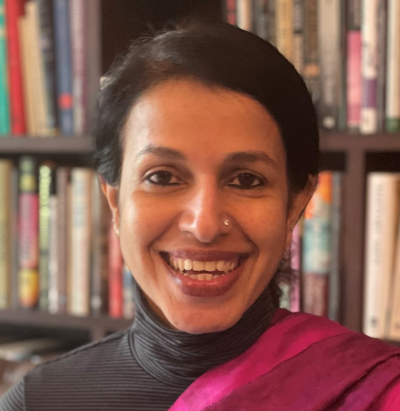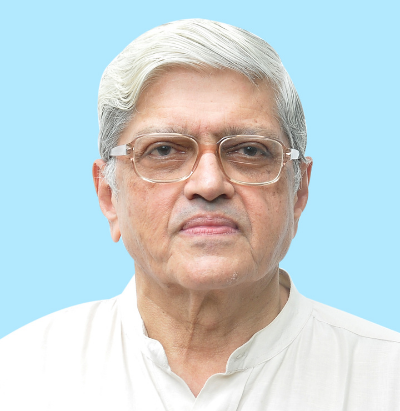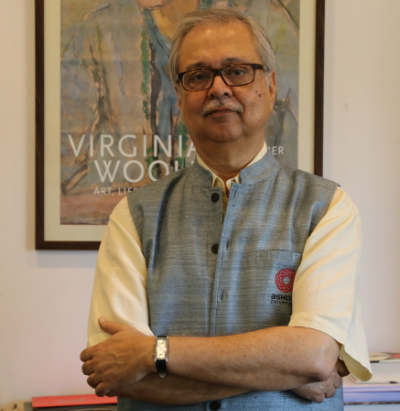Studying books from different cultures, time periods and languages, the Great Books course introduces students to multiple ways of thinking and being in the world. Complex questions about sexuality, conflict, self, identity and science are navigated with reference to books, and fragments of books, from across geographies and chronologies These books and questions form the core of the course and its explorations.
Department: English | Semester: Monsoon 2022
In this course, we will address the question “What is sexuality” by reading some of the many books that have shaped our current ideas of the subject. These books will range across chronologies, cultures, and disciplines, starting with classical and medieval Indic texts — the Kamasutra, Sufi poetry — to ancient Greek and Roman classics — the Symposium, the Metamorphoses. We will also read philosophical texts like the Discourse on Method, biological texts like The Origin of Species, psychoanalytical texts like The Interpretation of Dreams, and literary texts like Mary Shelley’s Frankenstein. Together, these “great books” will allow us to trace threads that have gone into our current ways of thinking about sexuality.
Watch Video
Department: History | Semester: Monsoon 2023
In this course, through certain texts, and in some cases, parts of texts students are invited to explore a series of complex and variegated themes and issues. Some of these are the relationship between knowledge and ignorance, darkness and truth; the relationship between identity and destiny; narratological techniques; understanding of the historical processes and ideology; and the quest to discover the self to emancipate it from the restrictions that society imposes on the self. The books through which these issues are pursued are:
- Isa Upanishad (RM) 29/8,31/8, 5/9, 7/9
- King Oedipus by Sophocles (RM) 12/9, 14/9, 19/9, 21/9
- Vishnu Stotra Satanam (GG) 26/9,28/9, 3/10.
- Meditations by Marcus Aurelius (GG) 5/10, 17/10,19/10,26/10
- The Communist Manifesto by Marx and Engels (RM) 31/10, 2/11, 7/11, 9/11
- Room of One’s Own by Virginia Woolf (RM) 14/11, 16/11, 21/11
- Long Walk by Nelson Mandela (GG) 23/11 28/11, 30/11, 5/12
Department: History | Semester: Monsoon 2023
It is a truism that words mean something, and that they count for a great deal in life. However, the relation between thought, reality, and time has always been a matter of debate. The Greek word theoria meant contemplation, the act of looking, which later acquired the sense of an intelligible explanation based on observation and reasoning.
Historia meant inquiry, the search for knowledge; and it evolved over time to mean investigations and accounts of past events. Philosophia meant the love of wisdom. These
words, which relate to human experience in its deepest sense, prompt my choice of great books. As to why this is so should become clear in due course. The books are:
Simon Leys; The Hall of Uselessness: Collected Essays, (2011)
Tibor Szamuely; The Russian Tradition; (1974)
Margaret Chatterjee; Gandhi and the Challenge of Religious Diversity; (2005)
Albert Camus; The Rebel: An Essay on Man in Revolt; (1956)
Mark Lilla; The Reckless Mind: Intellectuals in Politics; (2001)
Stanley Rosen; Nihilism: A Philosophical Essay (1969)
The first three books deal (in part) with history; with what is called tradition; and the treatment of these themes in political writing and fiction. The latter three deal with philosophical issues directly. I will introduce students to these books and specify certain chapters for required reading. Their scholarship will educate us and prompt us toward further study. Some will illuminate important historical events; others will raise issues common to human experience regardless of time and place.
Department: English | Semester: Spring 2024
This course seeks to reflect on care and love both conceptually and experientially. What does it mean to love and care for oneself and for others? What allows us to love and care? What prevents us from caring and loving ourselves and others? What forces—personal, interpersonal, or collective and communal—regulate, prescribe and even prohibit experiences and expressions of love. As the narrator in Arundhati Roy’s The God of Small Things poignantly reflects, such questions are older than any conception we might have of “history,” and comprise at times unspoken and often unwritten “Love Laws” that determine who can be loved, how and how much.
Our primary goal in the course is to work towards developing a critical and comprehensive language around understanding care and love as the basis for any and all configurations of relationalities that both make and unmake our senses of being in the world. Beginning our journey with selections from The Symposium by Plato, verses from the Gatha Sattasai, poetry from the Akam repertoire of Sangam literature and pre-Islamic Arabic poetry, we will make our way through more contemporary iterations and meditations on caring and loving such as, Roland Barthes’ A Lover’s Discourse and Ocean Vuong’s On Earth We Are Briefly Gorgeous. All along the way we will be reflecting on and attempting to problematize “traditional” and “normative” structures within which care and love are usually understood and experienced.
Department: Creative Writing | Semester : Spring 2024
We will read 12 select works by Nobel Laureates from around the world, works that have originated in various languages, cultures, histories, geographies, and systems of thoughts and beliefs, mediated by individual talent. We will read for themes that converge and diverge among what is now considered a canon of the 20th Century. We will, alongside the specificities of each text – which will comprise fiction, non-fiction, and poetry – alsoi interrogate the idea of the canon, the notion of the market and literary awards, what constitutes literary excellence, and, finally, what it means to read translated texts.
Semester: Monsoon 2023
Know Thyself (Gnothi Seauton). This was the injunction inscribed at the entrance to the ancient Greek temple of Apollo at Delphi. Socrates claimed that understanding the self was the beginning of all wisdom, yet many of us walk through our lives gaining deep understanding of the world around us, but content to see our own inner life as something of a familiar mystery.
We will begin by surveying several “doctrines of soul” which emerged during the Axial Age, that great flowering of religious and philosophical thought. We will read excerpts from the Bible, from the Upanishads, the Pali Cannon, and from foundational texts of Confucianism and Daoism. We will then turn our attention to Plato and Aristotle, reading selections of the Republic and De Anima. Augustine’s Confessions will show us how the inner life of Platonism was reformed in the Christian west as a fallen spirit, a model that received its greatest treatment in Dante’s Divine Comedy, especially in Purgatory. This view of humanity was eventually challenged in the Renaissance by Pico Della Mirandola in his Oration on the Dignity of Man, and then powerfully by Shakespeare in his 1604 work Hamlet. Of the early modern philosophers, we will read excerpts from Descartes’ Discourse on Method, Hobbe’s description of human psychology in Leviathan, and we’ll compare and contrast the views expressed in Hume’s Treatise of Human Nature with those of Rousseau in Emile. Kant marks something of a split between the philosophers and the scientists on this question, so we’ll touch on his thought before turning to Darwin’s early description of human evolution in The Descent of Man, Sartre’s radical existentialism of human freedom in Being and Nothingness, and Freud’s reworking of Plato’s thought. Among the contemporary scientists, there aren’t necessarily classics or “Great Books”, so we’ll survey the territory using scholarly articles. The philosopher Chalmers will show us just how far we still have to go in discovering our inner essence in The Hard Problem of Consciousness. Both philosophers and neurologists are exploring the possibility that our inner life is nothing more than an epiphenomenon – foam tossed up by the waves of the neural structures in our brain, but of no essential or transcendent character. Other scientists are giving us insight into the differences between the inner lives of men and women (in general terms) in works like Why Gender Matters while authors Wilson and Holmstrom spar over whether gender differences are biological or social in nature. Other contemporary thinkers explore the role of culture and language in shaping our inner world and personal identity.
If this seems like a lot, it is, because it’s a question humans have been grappling with for a long time. The good news it that we’ll be working with selections of these works rather than the entire books and all of it will be made available electronically in the course, so there won’t be books to buy. I hope you’ll join us for a fascinating intellectual journey into the essence of – US
Semester : Monsoon 2023
In this Foundation Course, students will read 8-10 books that are essential for an introduction to the humanities in India. These books give a sense of the long history, the many languages and cultures, the diverse religious and philosophical traditions, as well as the social and political complexity of South Asia.
The books assigned will be taken from a long-list of 14 (for 14 weeks of the semester). A list of assigned books, as well as supplementary and recommended readings will be provided closer to the start of the semester. The Argumentative Indian (2005) by Amartya Sen will serve as the backbone of the course.
The longlist of 14 is below:
- The Edicts of Ashoka / Romila Thapar
- Selections from Arthashastra / Kautilya
- Selections from Baburnama
- Selections from Ardhakathanak / Banarasidas
- Hind Swaraj or Indian Home-Rule / M.K. Gandhi
- The Home and the World / Rabindranath Tagore
- Short Stories / Saadat Hasan Manto
- Taking Issue and Allah’s Answer / Mohammed Iqbal
- India: A Wounded Civilization / V.S. Naipaul
- Walking with the Comrades / Arundhati Roy
- One Part Woman / Perumal Murugan
- Baluta / Daya Pawar
- The Intimate Enemy / Ashis Nandy
- Tughlaq / Girish Karnad
Department: History | Semester: Spring 2024
In this course, through certain texts, and in some cases, parts of texts students are invited to explore a series of complex and variegated themes and issues. Some of these are the relationship between knowledge and ignorance, darkness and truth; the relationship between identity and destiny; narratological techniques; understanding of the historical processes and ideology; and the quest to discover the self to emancipate it from the restrictions that society imposes on the self. The books through which these issues are pursued are:
- Isa Upanishad
- King Oedipus By Sophocles
- Mahabharata (Selected Themes)
- Vindication of The Rights Of Women By Mary Wollstonecraft
- Tuhfat Al Muwahhidin By Rammohun Roy
- The Communist Manifesto by Karl Marx
- A Room of One’s Own by Virginia Woolf
Faculty Name: Aakash Singh Rathore
Visiting Faculty, Ashoka University | Semester: Spring 2024
Artificial Ethics
This Great Books course explores a wide range of texts, each regarded as true classics of their disciplines, whether originating from ancient Greece, India, or more recent times. Our aim is to try to address a few basic questions: Why should we — if indeed we should — be bound by ethics? What, if anything, appears to be essential to human moral psychology? How will our responses to these questions alter as humans become more cyborg (i.e., organically integrated with machines, bots, AI)? Will artificial ethics converge with human ethics or supersede it?
Readings (selections):
- Aristotle (c.350 BCE): Nicomachean Ethics
- Nāgārjuna (c.150): Mūlamadhyamakakārikā
- Friedrich Nietzsche (1886): Beyond Good and Evil: Prelude to a Philosophy of the Future
- M.K. Gandhi (1909): Hind Swaraj
- Isaac Asimov (1950): I, Robot
- Hannah Arendt (1963): Eichmann in Jerusalem: A Report on the Banality of Evil
- Stanley Milgram (1974): Obedience to Authority: An Experimental View
- Carol Gilligan (1982): In A Different Voice: Psychological Theory and Women’s Development
- Donna Haraway (1985): “A Cyborg Manifesto: Science,
- Technology, and Socialist-Feminism in the Late Twentieth Century”










